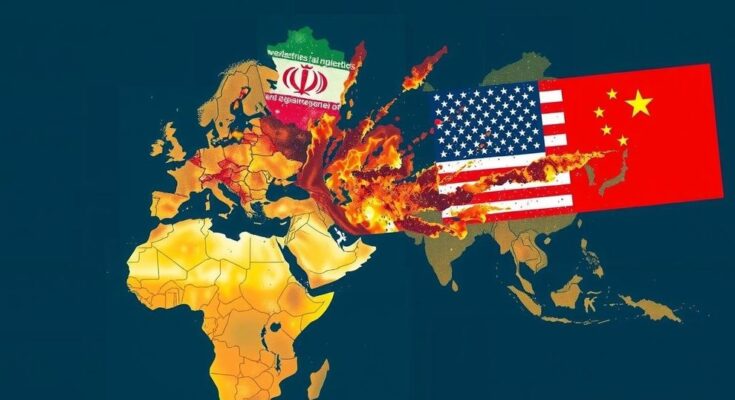Robert McNally, a former White House adviser, asserts that Donald Trump’s upcoming administration will implement a strategy of ‘maximum pressure’ on Iran to prevent conflict while intensifying challenges against China. Concurrently, it will dismantle current US climate policies, signaling a dramatic shift in both domestic and foreign priorities.
Following the recent electoral victory of Donald Trump, Robert McNally, a former advisor in the White House, has articulated how Trump 2.0 is poised to reshape the geopolitical landscape. McNally noted that the incoming administration will adopt a policy of ‘maximum pressure’ towards Iran, aiming to prevent military conflict while simultaneously addressing the challenges posed by China. This approach is expected to dismantle existing US climate policies, signaling a significant shift in environmental strategies and international relations anchored in economic competitiveness and national security concerns. In a statement made during his time in the Middle East, McNally emphasized that Trump’s new tenure would focus on exerting economic pressure on Iran, reflecting a continuation of the previous administration’s strategy to deter aggression without resorting to war. Concurrently, he predicted that relations with China would intensify, with measures likely directed at countering China’s economic maneuvers. Such decisions could fundamentally alter the US’s role on the global stage, especially concerning climate initiatives that had once sought to stabilize environmental impacts.
The context of this discussion reveals a pivotal moment in US foreign policy and domestic climate strategy. Robert McNally’s insights stem from extensive experience in energy economics and international relations, particularly regarding the Middle East. President Trump’s earlier administration was characterized by turbulent international relations, particularly with Iran and China, which holds implications for global economic dynamics. Now, as he returns to power, there is substantial anticipation regarding how these policies will be implemented amid increasing global environmental concerns.
The anticipated policies under Trump 2.0 foresee an aggressive stance towards Iran and a stringent approach to China, all while pivoting away from prior climate commitments. This potential transformation raises questions about the future of international diplomacy and the US’s responsibility towards climate change. As the geopolitical landscape evolves, the implications of these changes will impact not just the US, but also its allies and adversaries around the world.
Original Source: www.upstreamonline.com


